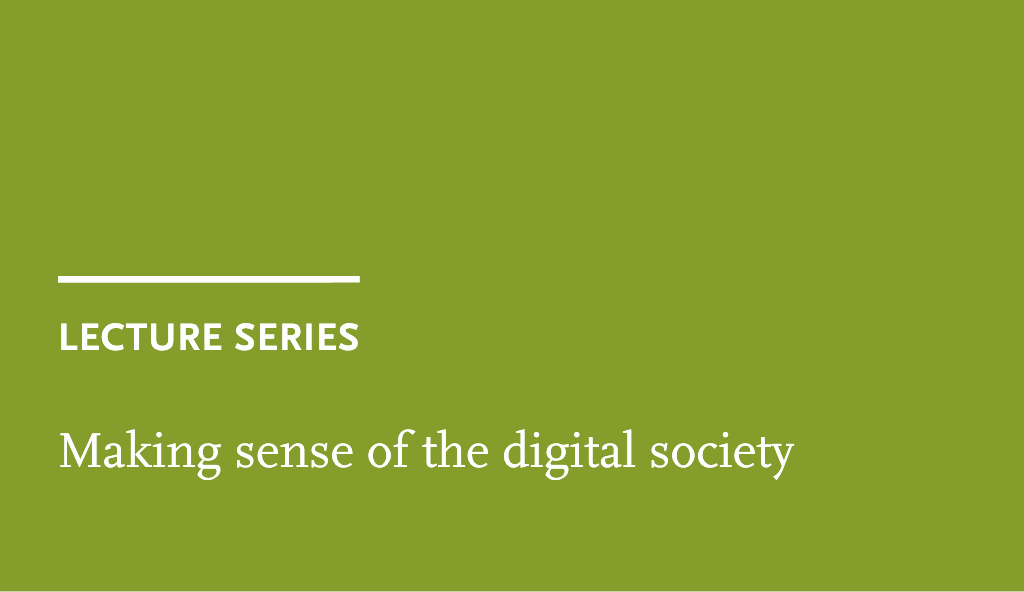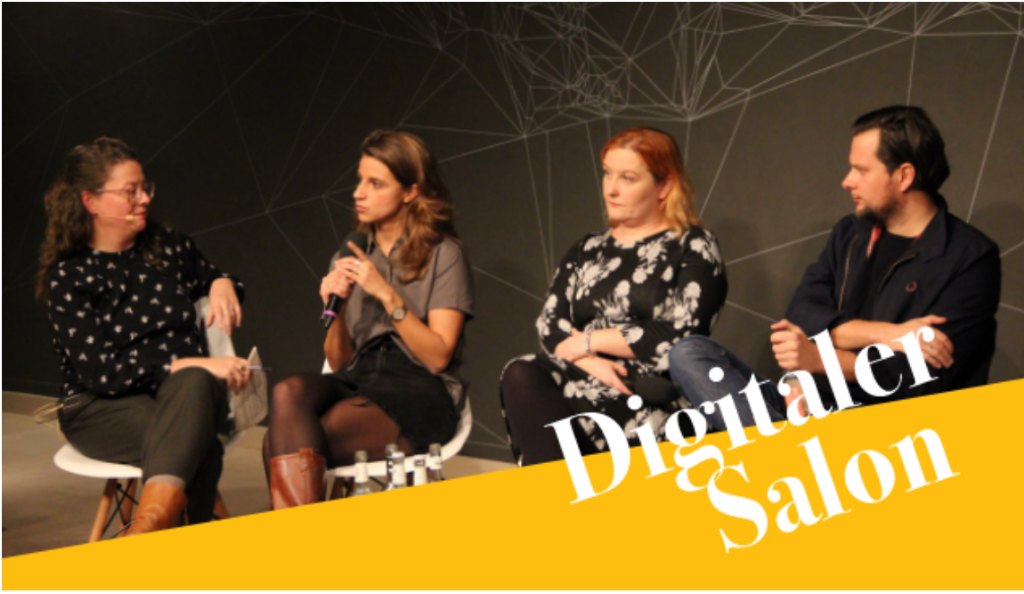
Digitaler Salon: Diskriminierung vorprogrammiert?
Once a month, we publicly discuss the impact of digitisation on society at Digitaler Salon. We invite special guests, engage in a dialogue with the audience and the Twitter community and broadcast it on YouTube. In July, we will talk about algorithms and discrimination. The talk will be held in German. Below you will find more detailed information in German.
Gesichtserkennungssoftware weist eine hohe Fehlerquote bei People of Color auf, und Sprachprogramme erkennen britisches oder amerikanisches Englisch besser als Englisch mit Akzent. Nach welchen Kriterien werden Kredite vergeben? Und wie entstehen algorithmische Vorurteile? Und wie können bestehende Machtstrukturen gebrochen werden, um sie nicht ins Digitale zu reproduzieren? Google hat sich zum Ziel gesetzt, rassistische Begriffe aus der Computersprache zu verbannen. Sie ersetzen “Blacklist” und “Whitelist” durch “Blocklist” und “Allowlist”. Welche Rolle spielt das Umfeld in dem wir leben und die Art wie wir miteinander sprechen und chatten? Ist uns bewusst, dass wir so bereits die Daten für die Programmierung der Algorithmen und Künstlichen Intelligenzen formen?
Digitaler Salon – Diskriminierung vorprogrammiert?
29.07.2020 | 19.00 Uhr | Einlass 18.30 Uhr
Die Moderatorin Katja Weber (radioeins, Deutschlandfunk Nova) diskutiert zum Thema Diskriminierung in digitalen Technologien und Netzwerken mit:
- Shirin Riazy, wissenschaftliche Mitarbeiterin an der HTW Berlin im Projekt “LADI – Learning Analytics und Diskriminierung”, das sich damit beschäftigt, wie Diskriminierung durch den Einsatz von algorithmischen Auswertungen begünstigt oder verhindert werden kann.
- Christina Dinar, stellvertretende Direktorin des Centre for Human Internet and Human Rights, setzt sich in der politischen Bildungsarbeit gegen die Verbreitung von Hate Speech im Netz ein.
- Francesca Schmidt, Referentin für Feministische Netzpolitik im Gunda-Werner-Institut für Feminismus und Geschlechterdemokratie. Sie beschäftigt sich mit Fragen digitaler Gewalt, Überwachung und Kontrolle, Algorithmen, Künstliche Intelligenzen und deren sozionormativen Implikationen.
Katharina Mosene führt in das Thema ein. Sie ist assoziierte Forscherin und kümmert sich am Leibniz-Institut für Medienforschung │ Hans-Bredow-Institut (HBI) um den Bereich Forschungs- und Veranstaltungskooperationen. In ihrer Freizeit ist sie Gründungsmitglied von netzforma* e.V. – Verein für feministische Netzpolitik.
From 6.30 pm we will open the doors and from 7 pm the talk will be broadcasted live on hiig.de. Then join in – via Twitter or sli.do using #DigSal. Digitaler Salon takes place every last Wednesday of the month under a different question. Records of past events and more information can be found here.
Please note: In order to be able to trace possible chains of infection, due to the SARS-CoV-2 Containment Measures Ordinance we are obliged to keep a record of attendance. For this purpose, contact data is collected via the registration form on the website. You will find further information on this in our data protection declaration. In the rooms of the institute, a face mask must be worn outside of your own seat. A minimum distance of 1.5 metres applies to all visitors. Visitors with cold symptoms and fever should not attend the event.
DIGITAL SOCIETY LECTURES
This high-profile lecture series thrives to develop a European perspective on the processes of transformation that our societies are currently undergoing.
DIGITALER SALON
Once a month we publicly discuss the impact of digitalisation on the society. Therefore we invite special guests and engage in a dialogue with the audience.
NEWSLETTER
Be the first to learn about our new events and exciting research results.

